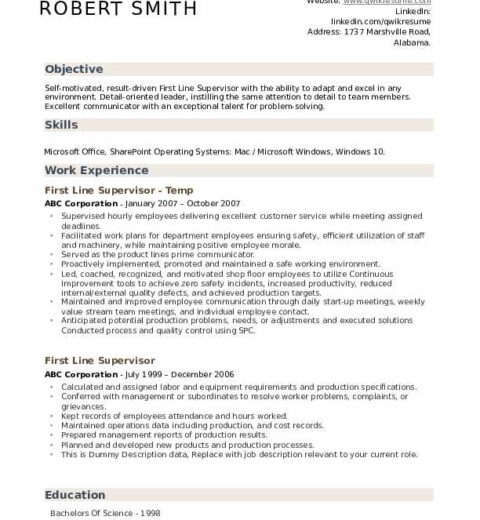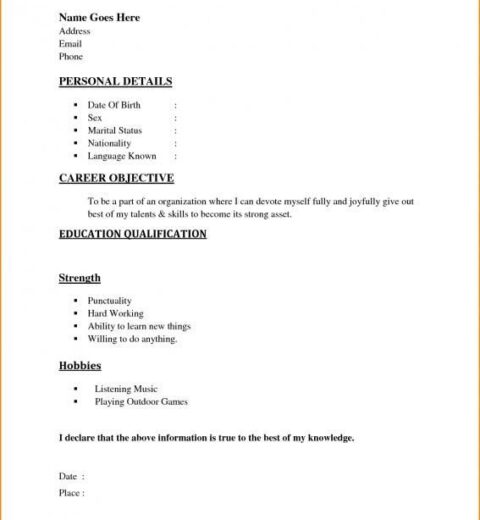Crafting a compelling résumé is an art form that combines both aesthetic appeal and substance. One of the most crucial components of your résumé is the skills section. This section not only highlights what you are adept at but also serves as a beacon to recruiters, illuminating your suitability for the role. Understanding what to include can be a game changer in catching a recruiter’s attention.
In today’s job market, characterized by fierce competition and rapidly evolving demands, it’s vital to curate this section meticulously. Recruiters often scan through numerous résumés in a short time frame. Thus, the skills you choose to emphasize must be both relevant and compelling. Let’s delve into the kinds of skills that resonate with recruiters and how they can transform your résumé from mediocre to memorable.
1. Technical Skills: The Cornerstone of Modern Applications
In an era dominated by technology, technical skills are indispensable. Familiarity with software, programming languages, and tools relevant to your industry is vital. For instance, knowing languages like Python or Java translates into a strong asset for positions in software development. Similarly, proficiency in data analysis tools such as Excel, Tableau, or SQL can set you apart in business or analytical roles.
But merely listing these skills isn’t sufficient. Illustrate your experience with concrete examples. Instead of stating “proficient in Microsoft Excel,” consider saying, “expertly utilized advanced Excel functions to enhance reporting efficiency by 30%.” This approach not only conveys technical know-how but also showcases the tangible outcome of your skills.
2. Soft Skills: The Unsung Heroes
While technical skills demonstrate your ability to perform tasks, soft skills are what make you a desirable team member. Skills such as communication, leadership, adaptability, and problem-solving are ever more valued by employers. In fact, a robust blend of soft skills can be what tips the scales during hiring decisions.
Consider an example: rather than merely claiming “strong communication skills,” you could articulate, “successfully led cross-departmental presentations to communicate project objectives and drive collaboration.” This phrases display an individual’s capacity to effectuate positive interactions in a professional environment.
3. Industry-Specific Skills: Tailored to Your Target
Generic skills might be applicable across various fields, but industry-specific skills can be your golden ticket. For instance, understanding regulatory compliance is crucial in the financial sector, while knowledge of design software such as AutoCAD is imperative in architecture. When applying for positions, thoroughly research the required skills for your target job and customize your résumé to align. This demonstrates your commitment and understanding of the industry.
Furthermore, keep abreast of the latest trends in your field. Being conversant with new methodologies or technologies can make your résumé shine. Recruiters favor individuals who show a willingness to learn and adapt, ensuring you remain relevant and competitive in your profession.
4. Certifications and Continuous Learning: Evidence of Professional Growth
Obtaining certifications can augment the skill set outlined on your résumé. Certifications are not merely decorative accolades—they provide concrete evidence of your expertise and commitment to your field. Consider including certifications such as Certified Project Manager (PMP), Google Analytics, or AWS Certified Solutions Architect, depending on your industry.
Additionally, highlighting courses or training programs you’ve completed showcases your proactive approach to professional development. It illustrates that you are not only knowledgeable but also invested in expanding your skill set. An entry like “completed a Google Data Analytics certificate program, enhancing my practical understanding of data-driven decision-making” can significantly bolster your appeal.
5. Language Skills: Breaking Barriers
In an increasingly globalized world, linguistic proficiency can distinguish you from other candidates. Being bilingual or multilingual expands communication possibilities, making you an asset in diverse workplace settings. Specify the languages you can speak and your proficiency level—basic conversation, fluent, or proficient. A line stating, “Fluent in Spanish with advanced written skills,” communicates your capability to engage both verbally and through written channels in a significant way.
6. Personal Branding: Crafting Your Unique Narrative
Incorporating personal branding into your skills section can create intrigue. What makes you unique? Perhaps you have exceptional skills in creative problem-solving or a knack for innovative thinking. Elaborate on these attributes in ways that resonate emotionally with recruiters. For example, instead of simply stating “creative thinker,” one might say, “delivered inventive solutions on multiple projects that resulted in a 40% increase in customer satisfaction.” This not only highlights a skill but also provides a glimpse into the impact of that skill.
Conclusion: A Cohesive Presentation
Ultimately, the skills section of your résumé should serve as a microcosm of your professional identity. By combining technical proficiencies, soft skills, and industry-specific competencies, you establish a multifaceted presence. Incorporate tangible examples, certifications, and personal branding to craft an engaging narrative that speaks directly to potential employers.
As you populate your skills section, remember that clarity and relevance are your guiding principles. Each skill, accompanied by an impactful example, transforms this section into a powerful tool for demonstrating your value. In doing so, you haven’t just listed abilities; you’ve painted a vivid portrait of your professional prowess that invites further inquiry from recruiters.




